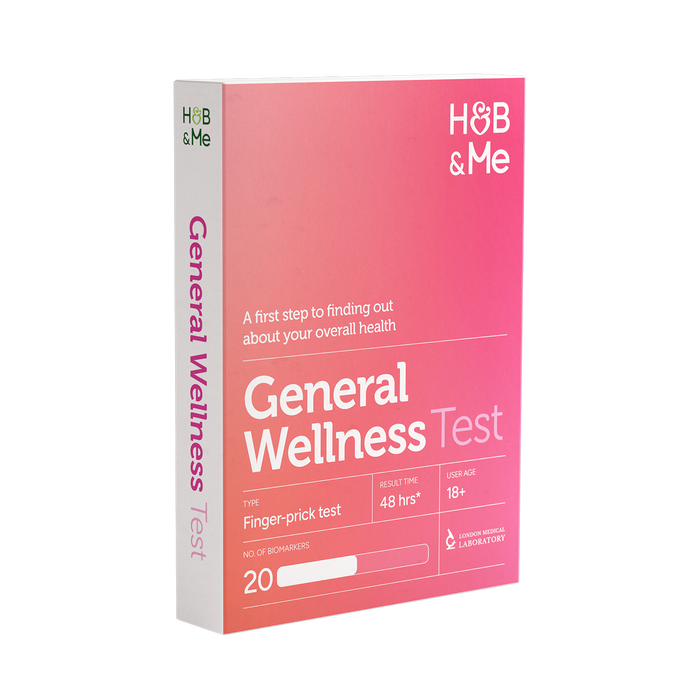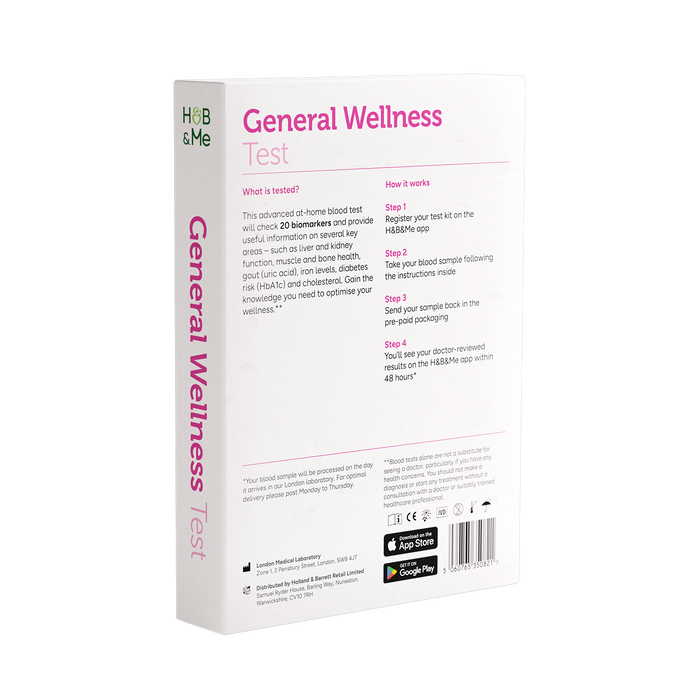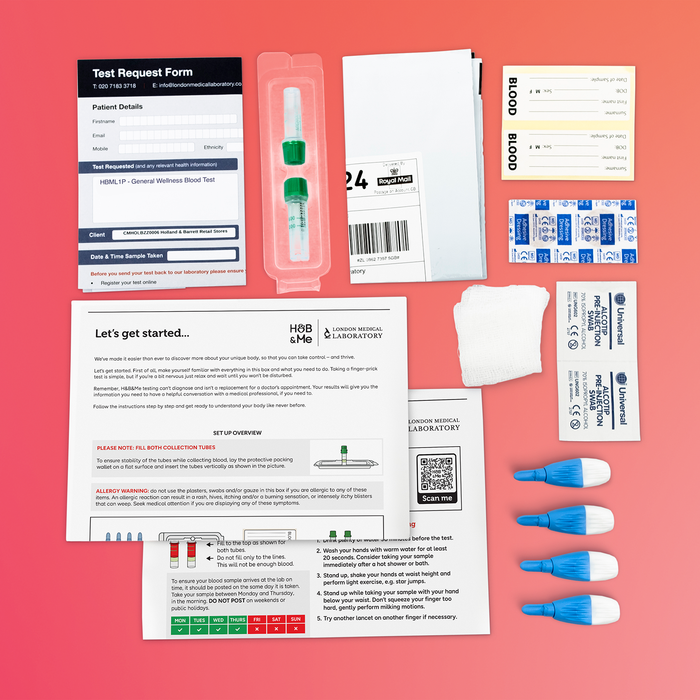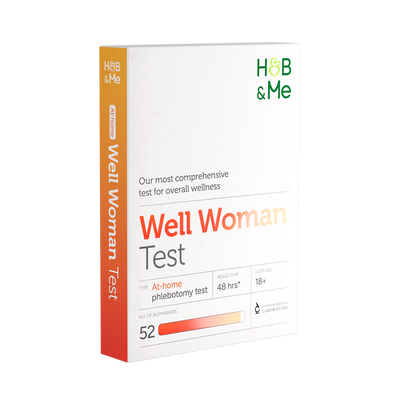Lab delays are causing a 3-5 day delay in getting your full results. Please contact our help centre if you require assistance
General Wellness Blood Test
Unlock valuable insights into your health and wellness with our most comprehensive at-home finger prick test. This convenient test analyses 20 key health markers, providing valuable insights into your cholesterol, blood sugar, liver and kidney function, iron levels and more. Gain a deeper understanding of your overall wellbeing and empower yourself to make informed decisions.
-
Regular Price
-
£69.00
-
Sale Price
-
£69.00
-
Regular Price
-
- Regular Price
- £69.00
- Sale Price
- £69.00
- Regular Price
Free delivery Delivered in 1-3 days
Read our data privacy notice here
Great test very thorough and fast results
'I sent off my test and had results next day in the app. Thorough test, would recommend.'
Doedoe
What can you learn?
How it works
Register your test
Register your test kit on the H&B&Me app.
Do your test
Collect your blood sample at home following the instructions.
Send it back
Return your sample in the prepaid envelope provided.
Get your results
View your results on the app within 48 hours.


Product advice
Book a free video call with our expert advisors for product tips tailored to you.
Full doctors report
Get a downloadable report from a registered doctor explaining your results.
Results & App benefits
Get doctor reviewed results without having to wait for a GP appointment.

Your privacy. Guaranteed.
Keep track of your health anywhere with the H&B&Me app, now available on iOS and Android.
Safe and secure data
Your data is secure. We use the latest encryption technologies and we’re committed to our data protection responsibilities.
Protected privacy
Your data is never sold on, rented out, or shared with third parties for financial advantage.
Accurate insights
We work with Care Quality Commission-accredited labs and our blood test kits are all CE-marked.
Your data is secure. We use the latest encryption technologies and we’re committed to our data protection responsibilities.
Your data is never sold on, rented out, or shared with third parties for financial advantage.
We work with Care Quality Commission-accredited labs and our blood test kits are all CE-marked.
Meet our experts

Dr Leah Gorodi
Medical Lead and GP with a special interest in lifestyle medicine and health prevention

Dr Taran Toor
Chief Medical Officer, clinical entrepreneur and GP with an interest in digital health
Any questions?
Click the link below to access our FAQ’s page for advice and answers to some of your questions
Intended use
These blood tests are designed for adults aged 18 and over, and are unsuitable for children. Please note that these blood tests cannot treat or diagnose medical conditions. As Holland & Barrett don’t collect any data about your medical history, you must interpret the significance of your results with caution. Be aware that medical conditions, medications, or other aspects of your health can affect your test results. These tests do not replace seeking medical advice and assessment, and if you have an abnormal test result, you should always seek appropriate advice from a trained health professional.








